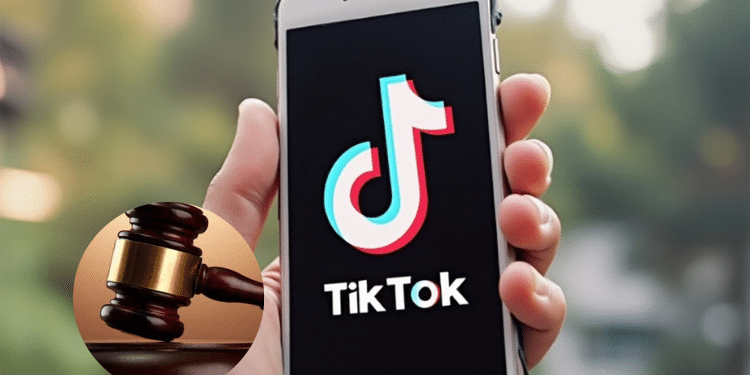TikTok faced a major setback on Friday, December 6, after a federal appeals court panel unanimously upheld a law that could potentially lead to its ban in the coming months.
This ruling marks a significant setback for the popular social media platform as it battles to remain operational in the United States.
The U.S. Court of Appeals for the District of Columbia Circuit declined TikTok’s petition to overturn the law, which requires the platform to sever ties with its China-based parent company, ByteDance, or face a ban by mid-January.
“We conclude that the portions of the Act the petitioners have standing to challenge — specifically, the provisions concerning TikTok and its related entities — survive constitutional scrutiny. We therefore deny the petitions,” Senior Judge Douglas Ginsburg wrote in the majority opinion.

TikTok set to be Banned in US After Losing Appeal
The court also rejected the company’s challenge to the statute, arguing that it violated the First Amendment.
“The First Amendment exists to protect free speech in the United States,” said the court’s opinion.
“Here the Government acted solely to protect that freedom from a foreign adversary nation and to limit that adversary’s ability to gather data on people in the United States.”
Also Read: Study Shows How TikTok Can be Empowering Amid Ban & Restriction Debate
In April, Congress approved a foreign assistance package that included provisions requiring TikTok to sever ties with ByteDance, within nine months or lose access to app stores and web-hosting services in the U.S.
President Biden quickly signed the bill into law, which is set to take effect on January 19. The president may grant a one-time 90-day delay if a sale is actively in progress by then.
President-elect Donald Trump, who takes office on January 20, previously attempted to ban TikTok during his first term but reversed his stance during the presidential campaign, vowing instead to “save” the app.
Allegations Against Social Media Platform
Lawmakers and national security officials have long expressed concerns about TikTok’s connections to China.
Officials from both political parties have warned that the Chinese government could exploit TikTok to spy on its roughly 170 million American users.
They also fear it could influence the U.S. public by amplifying or suppressing specific content.
Furthermore, they argue that these fears are justified, given that Chinese national security laws require organizations to cooperate with government intelligence efforts.
However, the company has consistently denied that it could be used by Beijing to spy on or manipulate Americans.
Its lawyers have pointed out that the U.S. has failed to provide evidence showing that the company handed over user data to the Chinese government or manipulated content for Beijing’s benefit in the U.S.
Also Read: TikTok to Ban Filters for Specific Users
What Next After Ruling
TikTok and ByteDance, both plaintiffs in the lawsuit, are expected to appeal to the Supreme Court. However, it remains unclear whether the court will agree to hear the case.
“The Supreme Court has an established historical record of protecting Americans’ right to free speech, and we expect they will do just that on this important constitutional issue,” TikTok spokesperson Michael Hughes said in a statement.
“Unfortunately, the TikTok ban was conceived and pushed through based on inaccurate, flawed, and hypothetical information, resulting in outright censorship of the American people.”
He argued that unless the statute is stopped, it “will silence the voices of over 170 million Americans here in the U.S. and around the world on January 19th, 2025.”
Follow our WhatsApp Channel and join our WhatsApp Group for real-time news updates.










![14 Companies To Be Granted New Mining Licenses By Govt [Full List] Cs Joho Lists 14 Firms Seeking Mining Licences, Kenyans Given 42 Days To Respond]( https://thekenyatimescdn-ese7d3e7ghdnbfa9.z01.azurefd.net/prodimages/uploads/2025/11/Mining-CS-Hassan-Joho-touring-the-Voi-Gemstone-in-Taita-Taveta-County-on-Friday-August-16-2024.-PHOTOJoho-360x180.png)
































































